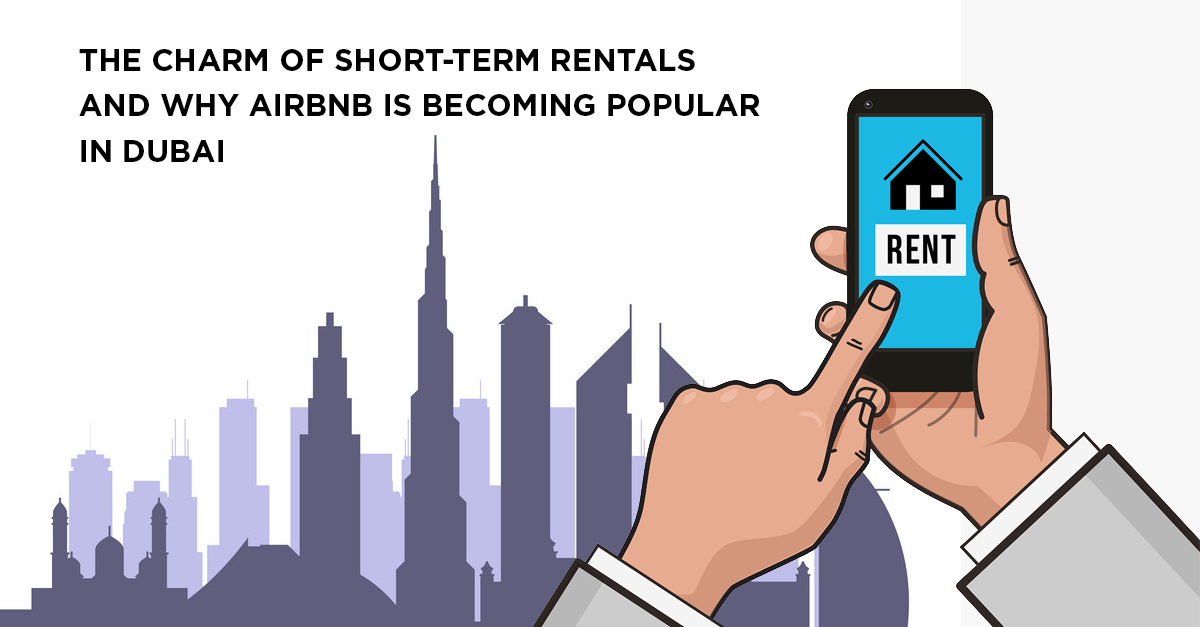The charm of short-term rentals and why Airbnb is becoming popular in Dubai
Shortly after moving into a new rented apartment in San Francisco in 2007, roommates Brian Chesky and Joe Gebbia found themselves at the wrong end of a high rent. To mitigate the burden, they put down an air mattress in the living room and turned it into a bed and breakfast service. Fast forward ten years, and their brainchild has snowballed into Airbnb, one of the biggest rental service companies in the world whose latest valuation is in the region of $35 billion. The company’s genesis has set off a positive disruption in the hospitality industry and its evolution is a revolutionizing the short-term rental market.
According to a recent Knight Frank report, there are currently 10,766 active property listings registered on Airbnb in Dubai, out of the total 20,395 properties ever registered in the region(1). To put that into perspective, 2% of total households in Dubai are listed on the site, which is the highest among global cities. Since 2016, active Dubai listings on the platform have witnessed a substantial growth rate of 161%. Owing to its meteoric rise and monumental impact within Dubai and beyond, Airbnb can be viewed as a microcosm of the short-term rental sector, whose growing traction knows no frontiers.
Charm of short-term rentals
Short-term rentals is an umbrella term with wide implications. In its elementary form however, a short-term rental is the leasing of accommodation for a short span, seen as a cheaper alternative to hotels. According to Sudhakar Rao, Chairman of Gemini Property Developers, multiple head to head comparisons between conventional hotels and short-term rental service like Airbnb have demonstrated significant disparity in prices. Sudhakar Rao estimates short-term rentals to be cheaper than hotel accommodation by around 20-60%, subject to location, amenities, duration of stay, season and corresponding factors.
From an owner’s standpoint, the charm of short-term rentals lies in higher returns. As opposed to long-term tenancy, earnings from renting out a property on a short-term basis tend to be generally higher, given the right market conditions. The owner has better control of the property, besides the prerogative to make any changes with little to no repercussions. Services like Airbnb and HomeAway offer comprehensive host packages that cover property damages and insurance liabilities, among other advantages. Additionally, regulations governing short-term rentals tend to be flexible and lenient, compared to ones applicable to conventional hotels.
The intersectoral impact
The traction of short-term rentals is evidently coming at the expense of long-term rentals, whose availability is undergoing an alarming decline. Due to the prospect of higher revenue generation, property owners are developing a proclivity to rent out on short-term basis, thereby affecting long-term housing availability. Residential neighbourhoods in tourist hubs are witnessing upsurge in activity, at times threatening the identity, serenity and decorum of the locality. However, these subtle and circumstantial disadvantages are supplanted by discernible economic impact.
According to a research conducted in San Diego, for the year 2014-15, the short-term rentals in the city generated an estimated $110.3 million in revenue and $86.4 million in other visitor-related spending, all in the span of a single year(2). Its combined economic impact on the city was estimated to be around $285 million, besides supporting and generating 1,842 jobs. However, hotel aggregators cried foul over the business models of short-term rental services, citing unfair economic advantage in terms of pricing and taxation. Some aggregators, however, jumped on Airbnb bandwagon by listing hotel rooms on the site. In the years since then, these trends are on the rise – both in terms of percentage metrics and the number of geographical locations that have embraced the practice of short-term rentals. This, of course, is typical of a disruptive new model causing shifts and realignments, in an established market space.
Sudhakar Rao believes the astronomical rise of short-term rentals has far reaching consequences that should be acknowledgement and capitalized upon, by property owners seeking can higher returns. However, the growth in the segment should also prompt the creation of regulations that take into account the interests of local communities, as well as actively countering market inflation, according to Sudhakar Rao.
Popularity in Dubai
Airbnb has already become synonymous with short-term rentals and holiday homes, but it needs to recognize the value-over-volume imperative, going forward. To that end, the company has adopted a multipronged approach, resulting in several acquisitions, adding new value to existing offerings and introducing a host of new services. The Department of Tourism and Commerce Marketing (DTCM), which governs short-term rentals in Dubai, has facilitated a platform conducive to the growth of Airbnb. Beginning with the introduction of well-defined short-term rental regulations, as early as 2015, DTCM has undertaken several elaborate measures to safeguard the interests of both hosts and guests, in Dubai’s short-term rental market(3).
The popularity of Airbnb in Dubai is also attributed to the widespread availability of ancillary amenities like swimming pools, gyms and parking facilities in residential buildings, unlike many other cities. Furthermore, most listings in Dubai comprise of two or more bedrooms, thereby catering to family requirements and gaining an edge over hotels. While hotels are spread evenly across Dubai, listings on Airbnb are clustered in sought-after areas like Dubai Marina, Palm Jumeirah and Downtown Dubai, adding to the allure. Burgeoning tourism and low occupancy rate of residential properties in Dubai are additional key drivers of Airbnb popularity in Dubai.
Sudhakar Rao believes the growth of short-term rentals in Dubai will bolster and complement the expansion of the local real estate market. While services like Airbnb may not be the sole panacea for Dubai’s real estate markets, a growth rate of 161% in two years demonstrates the inherent promise, Sudhakar Rao says in closing.




